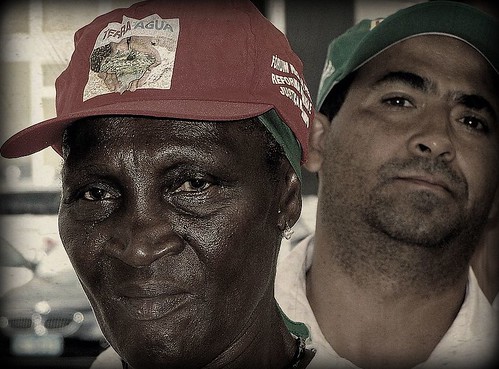A paper recently published in World Development brings new and fascinating evidence from Mexico of the impact of participatory governance mechanisms on access to services.
Below are a few excerpts from the paper by Diaz-Cayeros, Malagoni, and Ruiz-Euler “Traditional Governance, Citizen Engagement, and Local Public Goods: Evidence from Mexico” (emphasis are mine):
The goal of this paper is to assess the effects of traditional governance on local public good provision. We ask whether poor indigenous communities are better off by choosing to govern themselves through “traditional” customary law and participatory democracy, versus delegating decisions concerning the provision of public goods to “modern” forms of representative government, structured through political parties. This is a crucial question for developing countries seeking to enhance accountability, and a central problem in the theory of participatory democracy.
Our research design takes advantage of an important institutional innovation in the state of Oaxaca, Mexico, that in 1995 allowed indigenous communities to choose their forms of governance. The reform gave full legal standing to a form of traditional indigenous governance called usos y costumbres (usos hereafter), which entails electing individuals to leadership positions through customary law in non-partisan elections, making decisions through participatory democracy, and monitoring compliance through a parallel (and often informal) system of law enforcement and community justice. If they did not choose usos, municipalities could opt instead for party governance, which entails the selection of municipal authorities through electoral competition among political parties and the adjudication of conflicts only through the formal institutional channels, namely the state and federal judiciary.
(…)
Our results show that electricity provision increased faster in those municipalities governed by usos. They also suggest that traditional governance may improve the provision of education and sewerage. With respect to citizen engagement and elite capture, contrary to existing scholarly work, we find no evidence of entrenchment of local bosses (caciques) associated with the former ruling party, the Institutional Revolutionary party (PRI) in places ruled by usos. Our findings suggest that traditional participatory forms of governance do not handicap democratic development. Furthermore, municipalities governed by usos are more likely to hold open council meetings allowing citizens to participate in decisionmaking processes. We attribute better public goods coverage to differences in local governance and collective decisionmaking practices. We suggest three specific channels through which traditional governance affects local public good provision: the social embeddedness of municipal presidents, broader civic engagement in collective-decision making, and credible social sanctions. We argue that traditional governance practices (which include in our setting decision-making through direct participatory practices, the obligation to provide services for the community, and the establishment of a parallel system of justice), allow poor communities to better hold their political leaders accountable, prevent elite capture, and monitor and sanction non-cooperative behavior.
(…)
Systems of governance based on electoral competition among political parties differ essentially from usos because decisions are taken by politicians without an ongoing process of consultation with the citizenry. The monitoring and sanctioning dynamics that come into play when citizens gather in public assemblies are usually absent in party-run municipalities, and thus the allocation of resources for public goods seems sub-optimal.
(…)
Differences between the two types of governance that we presented in the paper point to a broader discussion of the organization of democracy. The delegated format of decision-making in electoral democracies dominated by political parties seems to bear a higher risk of agency loss than deliberative decision-making of what is often referred to as participatory democracy. (…) there are lessons to be extracted from the fact that, with regard to the provision of some basic services, a non-partisan political arrangement presented some advantages over the widespread electoral and party-based democratic organization. Participation and collective monitoring of authority are hugely important to maximize collective well-being.
Read the full paper here [PDF].



